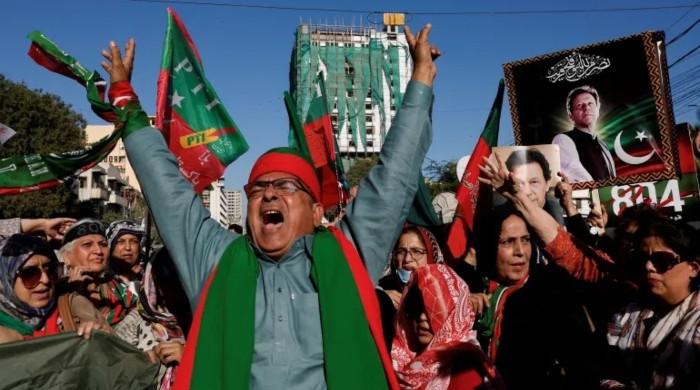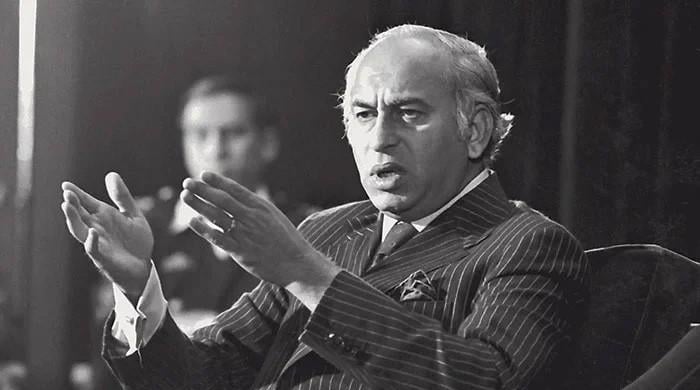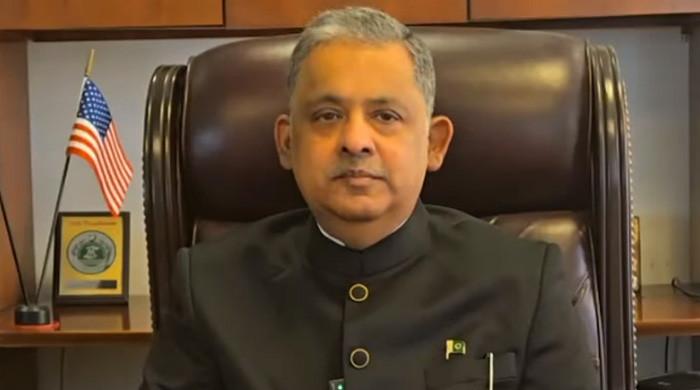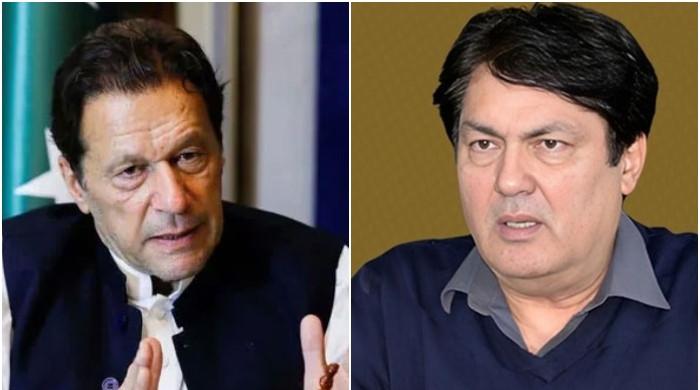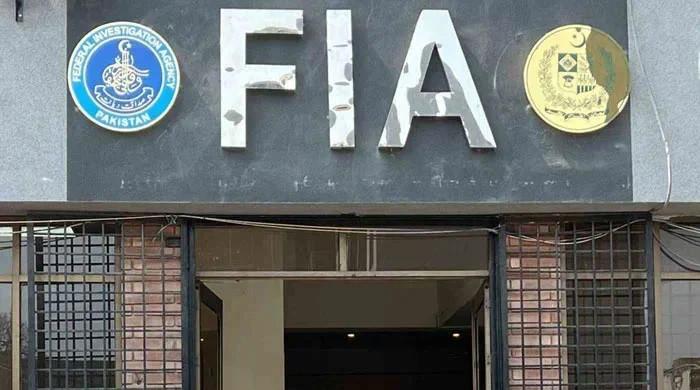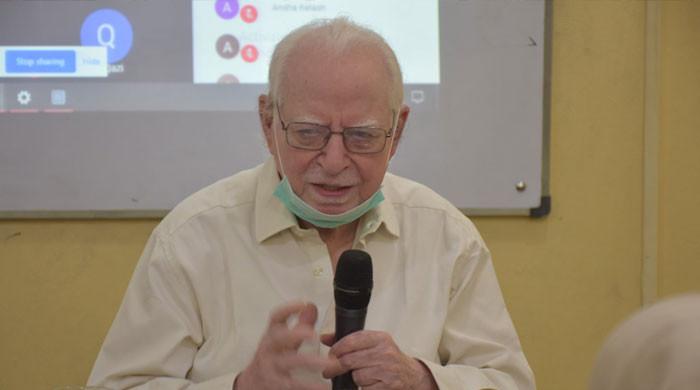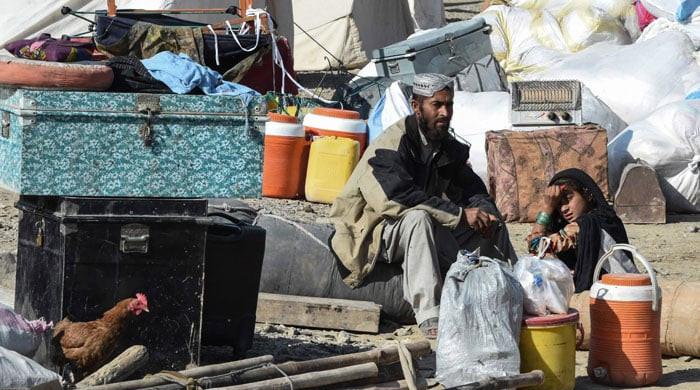IHC defers indictment in Rana Shamim affidavit case till Jan 20
IHC decides against indictment previously due in today's hearing; Justice Minallah says "nobody cares about freedom of expression more than court"
January 07, 2022
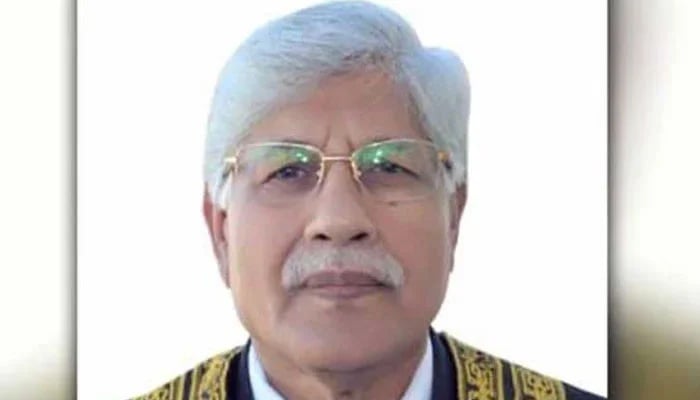
- Islamabad High Court decides against indictment of key individuals in today's hearing.
- IHC CJ says "nobody cares about freedom of expression more than court".
- AGP asks court to delay indictment of journalists, not Rana Shamim.
The Islamabad High Court (IHC) on Friday adjourned the hearing of a contempt of court case against former chief judge of Gilgit-Baltistan (GB) Rana Shamim and several journalists till January 20.
The IHC had in the last hearing decided to indict the former GB chief judge and others in a contempt of court case pertaining to the publication of an affidavit containing serious allegations that ex-chief justice of Pakistan Saqib Nisar attempted to influence a case against former prime minister Nawaz Sharif and his daughter, Maryam Nawaz.
At the outset of today's proceedings, IHC Chief Justice Athar Minallah told journalist Ansar Abbasi that the court had received his plea of a clerical error in the order. "Tell me, what clerical error is there in the order?"
The journalist told the IHC CJ that in the order, the court had quoted him as saying that even if a claim was wrong, he would publish it in the interest of the masses.
Responding to the journalist, the IHC CJ said: "In your application, you yourself had written that you were not aware whether his (Shamim's) claim against Nisar was true or not."
The judge asked Abbasi whether he would publish an affidavit solely on the basis of a prominent personality handing it to him.
"The prevalent narrative is that Saqib Nisar had influenced a judge in a case. However, the said judge was not even part of the bench [which tried Nawaz and Maryam]."
"Justice Mohsin Akhtar Kiyani, Justice Miangul Hassan Aurangzeb and I were part of that bench [...] and [in light of the news story], it seems like we had been influenced," he said.
If an inquiry is held, it will take place against the judges who were part of the bench, Justice Minallah said.
The IHC CJ told Abbasi that throughout the entire proceedings, he had tried to explain to the journalist what he had done.
"Take a look at past newspapers and see what you have published."
"The story was published two days before appeals in the case were to be heard," he pointed out.
'Nobody knows importance of ongoing case'
At this, Abbasi said Shamim will have to answer to the court regarding his affidavit.
Insisting that he had followed journalistic principles, Abbasi said he had published the former GB judge's claim along with Nisar's rebuttal.
The IHC CJ said he respected the right to freedom of expression and that he did not care about the criticism directed towards him.
"Nobody knows about the importance of the ongoing case in the court. Sometimes things are done unintendedly; this is the second contempt of court case I am hearing in my judicial career."
The IHC CJ also pointed out to Abbasi that his case was sub judice, yet he was still publishing statements from international institutions. At this, the journalist said he believes that the court should not frame charges.
It is pertinent to mention here that Reporters Without Borders (RSF) and other journalist organisations had urged the IHC to halt contempt proceedings against the journalists.
"You will not decide this, the court will; you cannot dictate the court," Justice Minallah said.
PFUJ's appeal
Pakistan Federal Union of Journalists (PFUJ) Secretary-General Nasir Zaidi, who was present during the hearing, said the court was a light in the darkness, as this court had given journalists justice.
"I appeal that you refrain from framing charges," he pleaded.
The court asked PFUJ's secretary-general whether the court's last order was sent to international organisations.
At this, Zaidi said the "court's decision was printed out and the text was circulated across the world".
The IHC CJ then asked whether he should also appoint a foreign specialist to assist in the case given the circumstances.
At this point, Abbasi said: "We publish several statements, but we don't mention whether they are true or not."
The IHC CJ repeated his question that if the journalist was not aware of the authenticity of Shamim's affidavit, then why did he publish it.
No need for criminal proceedings against journalists
The court's amicus curiae, Faisal Siddiqui, told the judge that "negligence" in publishing a news story did not warrant criminal contempt proceedings against a person.
"I am just against indicting journalists [...] take a look at Firdous Ashiq Awan's contempt case; Awan was involved in contempt of court and every media channel aired [her press conference]."
"Even in that case, no proceedings were carried out against the media."
At this, the IHC CJ said the issue is with Abbasi's stance, as he asked the journalist to show him any judgment which might suggest that the court issued orders under influence.
'No precedent for media being blamed for something someone stands by'
The court’s amicus curiae Reema Omer was also called to the rostrum to weigh in on the case.
Omer said that if contempt of court did take place, it was on the part of he who recorded his statement in the affidavit.
She said that the matter pertains not only to the freedom of expression but also to the right of access to information.
Omer noted that when the news first broke, the affidavit also did the rounds on social media, but the news story made no mention of the Islamabad High Court or any judge.
She lauded the court’s efforts to ensure freedom of expression remains intact in Pakistan.
The legal expert said that it is the duty of a journalist to exercise reasonable care before publishing a story. She noted that Ansar Abbasi had included Saqib Nisar’s stance in his story and that overall reasonable care had been exercised in the story’s publication.
She said that there is no precedent for the media being blamed for publishing a story regarding a statement that a party continues to stand by.
Omer said a judge of the same court, Shauqat Aziz Siddiqui, had levelled several serious allegations against the court which were reported by media all over Pakistan. “In that case, a judge was put under scrutiny, but no action was taken against the media,” she said.
The IHC chief justice asked whether the narrative that a bench was formed to delay the verdict at someone’s behest should be considered true.
“Are you suspecting that this court’s benches are formed at someone’s behest?” he asked.
“Not at all. I am not suggesting such a thing at all,” Omer replied.
The amicus curiae was then asked to take a seat by Justice Minallah and the court called upon Rana Shamim’s lawyer.
Shamim's lawyer begins arguments
Ex-CJ GB Rana Shamim's counsel Abdul Latif Afridi started his arguments and stated that it was not possible to stop an international organisation from commenting on anything.
Afridi, noting that every day some minister or adviser gives a statement which also gets published, also argued that since one of the suspects was not present in court today, charges should not be framed.
As the lawyer was speaking, Abbasi told the IHC CJ that he took care while publishing the affidavit and did not name the judge in the story. "I thought that this matter was no longer moot."
AGP asks for delay in journalists' indictment
Attorney General of Pakistan (AGP) Khalid Jawed Khan said in no way should the trial be affected, no matter who is at fault, as he noted that in case journalist Abbasi receives an affidavit from now on, he will make sure to investigate it further.
The AGP said the court should indict Rana Shamim and that he would be given a fair trial. However, he asked the court to delay the indictment of the journalists. "But they should remain present during court proceedings".
After hearing the arguments, the IHC CJ told the journalist that he was not questioning his credibility, but also said: "Abbasi sahab, I do not doubt your credibility, but you do not realise that you are at fault here."
The court then adjourned the hearing of the case till January 20.
Proceedings of last hearing
In the last hearing, Shamim's affidavit was read out in the court — more than a month after it was first published. Justice Minallah asked the ex-judge whether it was his. Shamim confirmed that it was his original affidavit.
The IHC had started proceedings against Shamim after his affidavit was published in The News, which accused Nisar of influencing a case involving former prime minister Nawaz Sharif and his daughter, Maryam Nawaz.
Defending himself when given the chance to speak during the proceedings, journalist Ansar Abbasi said he had a talk with Shamim before the news story's publication.
"He [Shamim] may be unable to recall properly and is forgetting, but I have explained this in my story and I have his text message as well," Abbasi said.
Justice Minallah, during the hearing, also said that Shamim's response that had been submitted in court earlier has placed the entire burden on journalist Abbasi.
"He [Shamim] also said that the document could have been leaked by the notary public," the IHC CJ said, adding that this matter is not limited just to former CJP Nisar.





